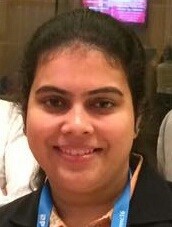Abstract:
Shu-Ha-Ri is a Japanese martial art concept which describes the progression of learning to mastery. This concept can be applied to various disciplines and is popular in an Agile journey.
How does this concept apply to Function Points?
This paper through various real-life challenges elucidates an FP user’s metamorphosis from Shu to Ha to Ri state. ‘Software Requirements’ starts the process for an FP implementer to apply his knowledge to arrive at realistic estimates. The journey of a practitioner begins and progresses as follows:
- Study the requirement and zero-in on Function Points as the appropriate method for sizing.
- Shu-Apply the rules of FP as-is.
- Ex. A typical case of bespoke application development project in waterfall.
- When requirements are unique or more complex than what was originally presumed.
- Ha-Approach the problem from a different perspective and then apply the rules.
- Ex. A development project in Agile.
- No matter how hard we try, sometimes cogs do not fit the wheel.
- Ri-Find ways to integrate experience with learning.
- Ex. An automation project, Projects using Big Data etc.
At the Ri-state, often a practitioner breaks the rules. However, he soon learns that he is still in the Shu-state thereby breaking the rule too soon. That is the Dunning-Kruger effect.
The Shu-Ha-Ri in Function Points kicks-in during application of this technique. Be it for a newcomer learning to apply FP to projects, an FP auditor dealing with project developers, or when emergent technologies like Big Data Hadoop, Devops, AI throw a curveball.
 Paramita Dutta Mandal had around nine years of experience as an Estimation and Project Management Consultant. She has professional experience in the areas of IT performance measurement, cost estimation, agile implementation in Scrum and Kanban and various process improvement model creation. She has co-authored various whitepapers in performance improvement and various estimation techniques. She was a presenter at the PMI Conference Mumbai chapter 2016 on the topic “Integrated Framework Enabling Optimized Outcome and Performance based Pricing”. As a CFPS since 2014, besides, contributing to FP measurement and audit for various projects, proposals and large deals in her organization, she has played a key role in productivity measurement and improvement, process leaning, external estimation consultancy and training in FP and its variants.
Paramita Dutta Mandal had around nine years of experience as an Estimation and Project Management Consultant. She has professional experience in the areas of IT performance measurement, cost estimation, agile implementation in Scrum and Kanban and various process improvement model creation. She has co-authored various whitepapers in performance improvement and various estimation techniques. She was a presenter at the PMI Conference Mumbai chapter 2016 on the topic “Integrated Framework Enabling Optimized Outcome and Performance based Pricing”. As a CFPS since 2014, besides, contributing to FP measurement and audit for various projects, proposals and large deals in her organization, she has played a key role in productivity measurement and improvement, process leaning, external estimation consultancy and training in FP and its variants.

